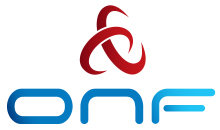- Conference Room Level O
- Registration and welcome coffee from 07.30
- Start of the TUTORIALS 09.00
- Exhibition open from 09.00 to 19.00
- Seated Lunch: 12.30
- End of THE TUTORIALS: 17.30
Focusing on NFV new features (OVS offload, ODL full support, OVS-DPDK ease of use, zero frame loss enhancements, …) that matters for current go-live.
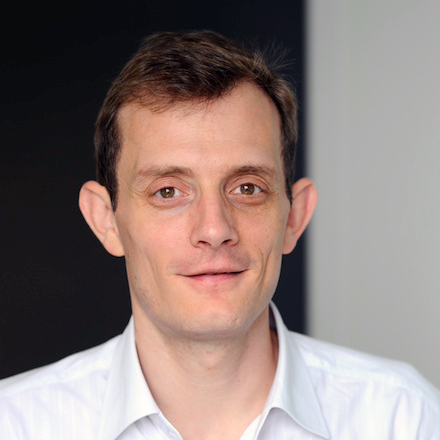
Franck Baudin, Linux Foundation
Franck Baudin is responsible for the NFV technical strategy within Red Hat’s OpenStack product management team. He currently focuses on providing high performance network connectivity to VNFs: SR-IOV, OVS-DPDK, VPP. Previously, within the Qosmos CTO team, Franck was responsible for technical Proof of Concepts and prototyping of emerging products, such as Service Function Chaining PoC in Telekom Malaysia lab and Qosmos L7 classification plugin. He also designed and led the implementation of DPI integration within DPDK based VNFs. Formerly, Franck was managing the engineering team at 6WIND. On the technical side, his responsibilities included the development of strategic projects in the areas of SDN, Open vSwitch, and Intel DPDK. Before that, he led the porting of 6WIND portfolio from FreeBSD to Linux.
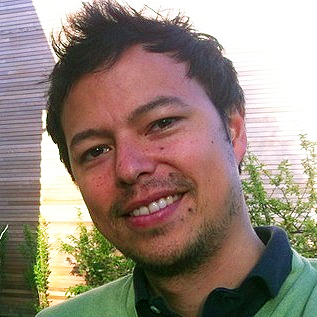
William Quiviger, Global Community Manager, ONF
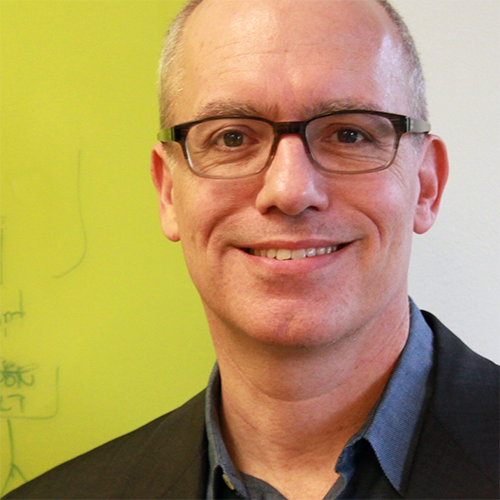
Timon Sloane, VP Marketing & Ecosystem, ONF
Timon Sloane is the vice president of standards and membership of the Open Networking Foundation (ONF) leading the organization’s efforts with SDN standards, skills certification, and membership. In his role as vice president of standards, Timon’s primary focus is to drive activities within the organization relating to the OpenFlow® standard, bridging standards activities and open source initiatives to bring efforts in both areas under a single umbrella. Timon also leads efforts relating to the ONF-Certified SDN Professional (OCSP) Program to build and enhance the worldwide footprint of the ONF’s skills certifications. Timon works closely with current and potential ONF membership to ensure that the full community is working together towards a common goal of accelerating the adoption of SDN. Prior to this new role, Timon provided product and management consulting services to numerous technology firms, most recently with Ericsson where he was driving product strategy for the networking product lines. His prior experience also includes executive roles in product management, marketing and engineering for firms such as Matisse Networks, Extreme Networks, NET, FlowWise and SCO. Timon received a Bachelor of Science in Computer Science from Rensselaer Polytechnic Institute.
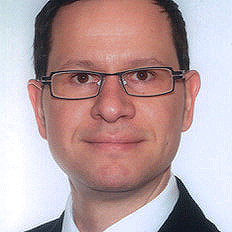
Manuel Paul, Senior Expert Standardization, Deutsche Telekom
Deeply engaged in strategy, innovation and engineering projects (incl. leading roles in cross-functional programs) within the DT group, Manuel coordinates Software-Defined Networking standards & collaborative community activities. He is involved in the SDN movement since the early days, has driven and contributed to various related standardization activities, and serves in leadership positions at the Broadband Forum and the Open Networking Foundation. He is co-initiator and leader of the 5G Convergence project stream within the BBF Wireless-Wireline-Convergence Work Area. In the past, he was also active in other standards developing organizations incl. the Internet Engineering Task Force.
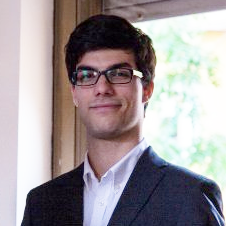
Andrea Campanella, Technical Staff, ONF
Andrea Campanella, 25 from Milan, Italy, is employed as a Member of Technical staff (MTS) at Open Networking Foundation since February 2017, with a previous internship in 2015 and 2016. Andrea obtained the Master's degree in computer science at the Public University of Milan in December 2016 after a Bachelor degree in Digital communication in July 2014 at the same institution. Andrea’s main focus in ONOS are southbound protocols, device integration, P4 and packet-optical use case. Andrea also works on CORD both in the Enterprise use case team and in the Trellis Leaf spine fabric.
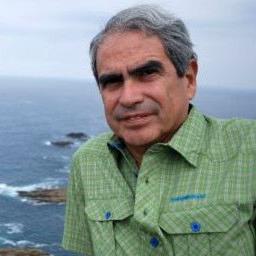
Alfonso Carrillo Aspiazu, Onlife Network Architect, Telefonica
The leading-edge applications, mostly promised by 5G, such as Vehicular Networks, Tactile Internet and Mission-Critical Applications are going well beyond the boundary of the applicability and capability of the current Internet. The ETSI NGP puts all facets together, studies their gaps with future applications, identifies new requirements, explores new ideas, and proposes new ways to define protocols in a holistic way.
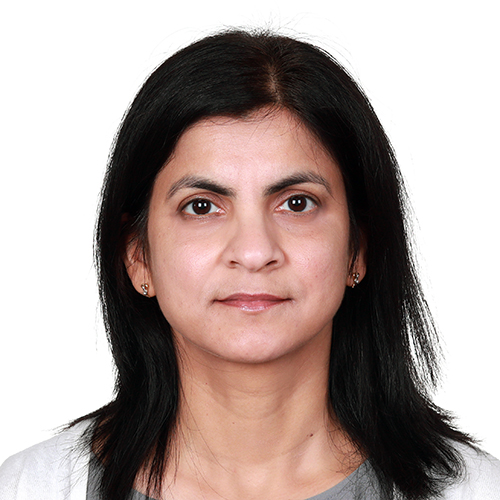
Kiran Makhijani, Principal Engineer, Huawei
Kiran Makhijani works as Principal Research Scientist at the Future Networks, Huawei USA. Her current work includes exploring posibilities in the design of next-generation network architectures, technologies, protocols, and solutions. In particular, network slicing realization in the context of specialized, purpose built networks for Industrial Internet, reliability with ultra-low latency, and Edge Computing. At Huawei, Kiran's contributions include an auto-scaling and auto-provisioning routing technology for cloud-centric networks, development of Topology-Transparent Zoning (TTZ), an IGP area virtualization technique to manage scale of route information; and Identity oriented services and communications in the 5G era. Prior to Huawei, Kiran worked at Cisco where she led many projects in IOS-XR, ASR9K; such as SDN initiative, policy-based routing, service-centric forwarding plane customizations and building reliable edge-services on distributed network operating systems.
Operators have a number of problems with the IP-based packet routing used in LTE, and it will also be difficult to deliver the low latencies promised for 5G with that technology.
ETSI ISG NGP was set up to address this issue, and there is an expectation that new routing protocols will be in Release 17.
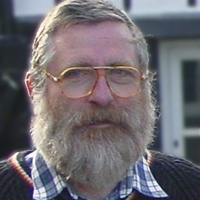
John Grant, Chair of ETSI ISG NGP
John Grant's career began at the Cambridge University Computer Laboratory, and he wrote the operating system and BASIC compiler for the Sinclair ZX range of microcomputers. In 1981 he created local area networking technology which was used in both industrial and commercial environments. Since then he has created products for carrying video and audio over digital networks, including network switching equipment; this has given him an insight into the requirements of audio and other live media, which are very different from those for data traffic. More recently he has been researching how packet networking can meet these requirements as well as avoiding the various problems that have been identified with IP. He is a Fellow of the Audio Engineering Society and chairs their standards subcommittee SC-02 (digital audio). He is also editor of several international standards documents including ISO TR 29181-3 (Future Network switching and routing).
15.50 ETSI NFV-Focused
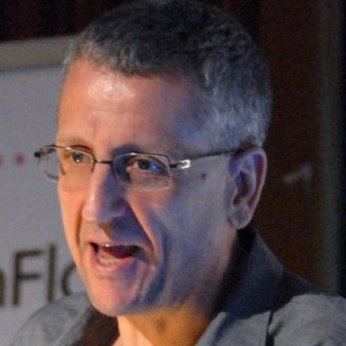 Led by
Led byDiego R. Lopez, Chair of ETSI NFV ISG, Co-chair of IRTF's NFVRG, Senior Technology Expert, Telefonica I+D
Since October 2011 Diego R. Lopez is in charge of Technology Exploration at the Global CTO Unit, within Telefónica I+D. His responsibilities are related to the definition and coordination of research projects in the areas of new networking technologies and network infrastructures. He is directly involved in activities related to network virtualization, core optimization, AAA, traffic analysis, and infrastructure security. He is actively participating in the ETSI ISG on Network Function Virtualisation (NFV), chairing its Technical Steering Committee. He is acting as representative of Telefónica in bodies related to network technologies, like the ONF and the BBF, and contributing to several working groups inside IETF.Diego have been appointed by the European Commission as member of the High Level Expert Group on Scientific Data e-Infrastructures (HLEG-SDI). He received his MS from the University of Granada in 1985, and his PhD degree from the University of Seville in 2001. Since 1985 he have worked for several private and public organisations, developing and deploying communication services. From 2000 to 2011 he was responsible for the Middleware Area of RedIRIS, the Spanish National Research and Educational Network. As part of these tasks he actively participate in national and international working groups and projects, and he have collaborated in several versions of the e-Infrastructure Reflection Group White Paper, under the auspices of the EU Presidency, in areas related to security and digital identity services. His current areas of interest are network middleware and network intelligence, virtualization of network architectures, control and signaling protocols, infrastructural and mediation service, and new network architectures and services Specialities: NFV and Software Networks. Internet middleware. Federated architectures. Directories (LDAP). Identity management systems: SAML, OpenID, OAuth. PKI. Internet security. RESTful services. RDF. SDN: OpenFlow
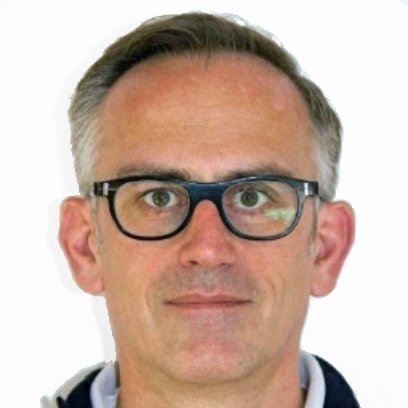
Jörg Aelken, Vice Chair, ETSI NFV TST Woking Group, Ericsson
Jörg Aelken is a Master Systems Designer at Ericsson’s business area for digital services. Jörg has been working in the telecommunication equipment vendor industry for more than 25 years, dealing with testing, automation and system design for mobile core applications. In his current system management role for Virtualized Network Functions he is bringing in his technical expertise on cloud native application design and interoperability testing. Additionally Jörg is an active member of the ETSI ISG for NFV, contributing to and leading the specifications from the working group on testing, open source and experimentation (TST). He is the current vice-chair of the TST Working Group at ETSI NFV ISG.
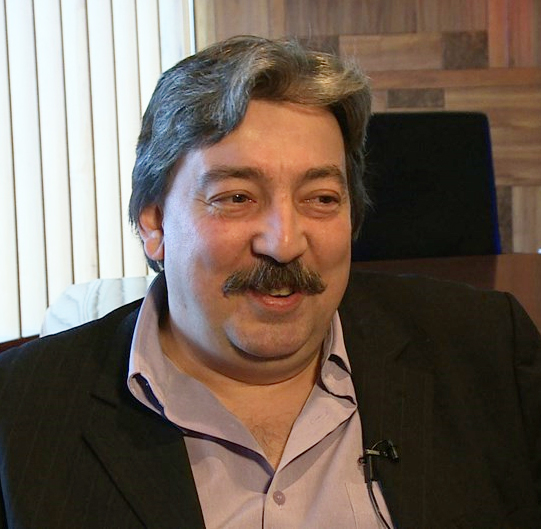
Bruno Chatras, Chair of the ETSI NFV ISG Solutions (SOL) Working Group, Orange
Bruno Chatras is a senior standardization manager at Orange Labs and a member of the Orange experts’ community on Future Networks. He is the Chairman of the ETSI Technical Committee on Network Technologies (NTECH). Bruno is also Vice-Chairman of the ETSI Industry Specification Group on Network Functions Virtualisation (ETSI NFV ISG) and is leading the work on APIs and data models in this ISG. Bruno joined France Telecom / Orange in 1985, where he started his career by developing standards for the GSM core network. Since then he held several management positions within Orange, where he led the Intelligent networks R&D Unit and has been Vice-Chairman of the ETSI Technical Committee on NGN and ITU-T Rapporteur for Intelligent Networks. Bruno holds several network-related patents and is the author of numerous papers and presentations in the area of network architectures and protocols.
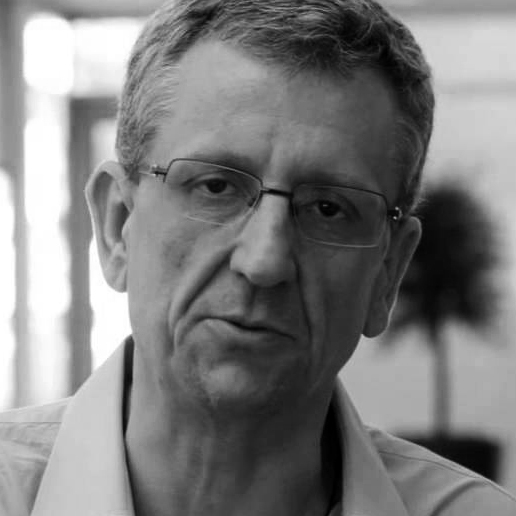
Diego R. Lopez, Chair of ETSI NFV ISG, Co-chair of IRTF's NFVRG, Senior Technology Expert, Telefonica I+D
Since October 2011 Diego R. Lopez is in charge of Technology Exploration at the Global CTO Unit, within Telefónica I+D. His responsibilities are related to the definition and coordination of research projects in the areas of new networking technologies and network infrastructures. He is directly involved in activities related to network virtualization, core optimization, AAA, traffic analysis, and infrastructure security. He is actively participating in the ETSI ISG on Network Function Virtualisation (NFV), chairing its Technical Steering Committee. He is acting as representative of Telefónica in bodies related to network technologies, like the ONF and the BBF, and contributing to several working groups inside IETF.Diego have been appointed by the European Commission as member of the High Level Expert Group on Scientific Data e-Infrastructures (HLEG-SDI). He received his MS from the University of Granada in 1985, and his PhD degree from the University of Seville in 2001. Since 1985 he have worked for several private and public organisations, developing and deploying communication services. From 2000 to 2011 he was responsible for the Middleware Area of RedIRIS, the Spanish National Research and Educational Network. As part of these tasks he actively participate in national and international working groups and projects, and he have collaborated in several versions of the e-Infrastructure Reflection Group White Paper, under the auspices of the EU Presidency, in areas related to security and digital identity services. His current areas of interest are network middleware and network intelligence, virtualization of network architectures, control and signaling protocols, infrastructural and mediation service, and new network architectures and services Specialities: NFV and Software Networks. Internet middleware. Federated architectures. Directories (LDAP). Identity management systems: SAML, OpenID, OAuth. PKI. Internet security. RESTful services. RDF. SDN: OpenFlow






